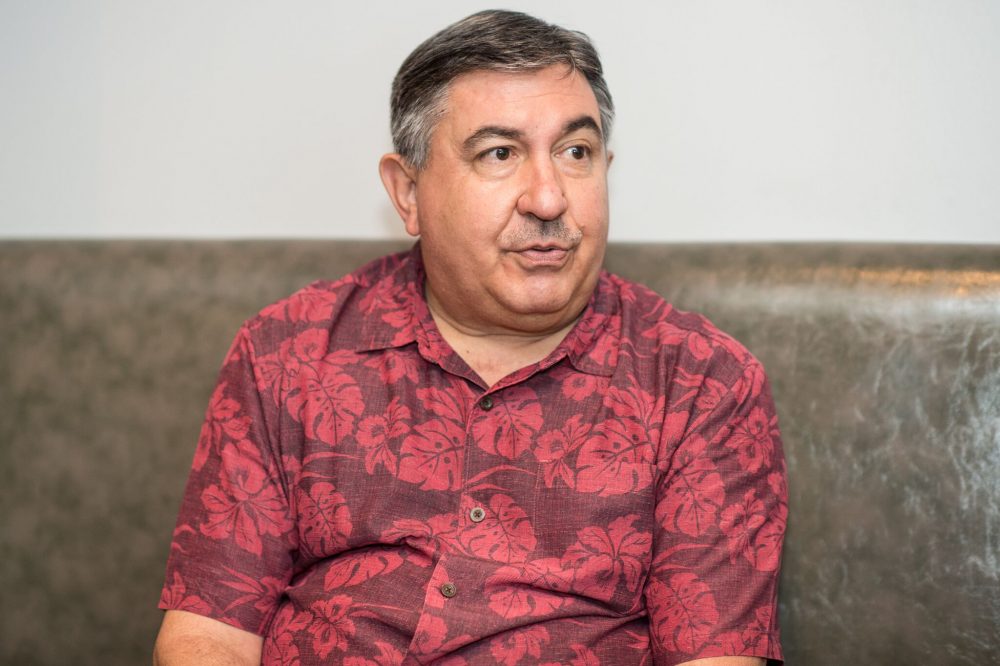
Photo by Joseph Esser.
Randy Perreira is director of the Hawaii Government Employees Association, the state’s largest union. Before taking part in a Zócalo/Daniel K. Inouye Institute “Pau Hana” panel discussion titled “If We Love Hawaii So Much, Why Don’t We Vote?” at Artistry Honolulu in Hawaii’s state capital, he spoke in the green room about his father’s advice, his mother’s plantation life, and the Hawaiian Dream.
Your father was a union man, too. What’s different between his day and your day?
Clearly, there’s a lack of understanding of the labor history of Hawaii. During my dad’s time, which was the ‘50s into the ‘60s, it was still pretty fresh in the minds of most people, the struggles that sugar and pineapple workers and dock workers had, particularly on the Big Island. Today, we’re several generations removed. Younger employees aren’t aware of the kinds of struggles, the strikes, being forced to live in a plantation camp under some pretty nasty conditions. That makes things a little bit more challenging.
How do you deal with that?
In today’s world, you have to show people value. For most of them, that is driven by how good of a contract you can negotiate, how good a wage increase they might get. But it’s hard to educate people about history because, honestly, Millennials and younger people aren’t too much interested in history. My kids, any kind of talk about history is lost on them.
What is the Hawaiian Dream? Is it the same as the American Dream?
I’m not so sure, because I think Hawaii attracts a lot of different kinds of folks. For somebody like me, kind of a traditional Baby Boomer guy, the Hawaiian Dream is somewhat similar to the American Dream: Making sure you have a good living, that you can raise a family, provide for your kids, and you’re able to enjoy a stable retirement and live out your life happily. For others, life here is trying to capture as much of the action as you can while you’re young and indestructible.
How was it for your parents?
My dad’s father was a truck driver; his mom was a homemaker. My mother, on the other hand, lived on a plantation. Her dad was a truck driver for the plantation. She lived that camp life, and they didn’t have running water in the house. They didn’t have a toilet; they had an outhouse. There was a trench where all the waste would flow through the camp.
What’s the most influential thing your dad ever said to you?
The one thing that really stuck with me was, “In life you have a choice: You either work for management, and do what management does, or you choose to represent the interests of the working person. I chose to represent the working man, and I made a good living out of that.”



